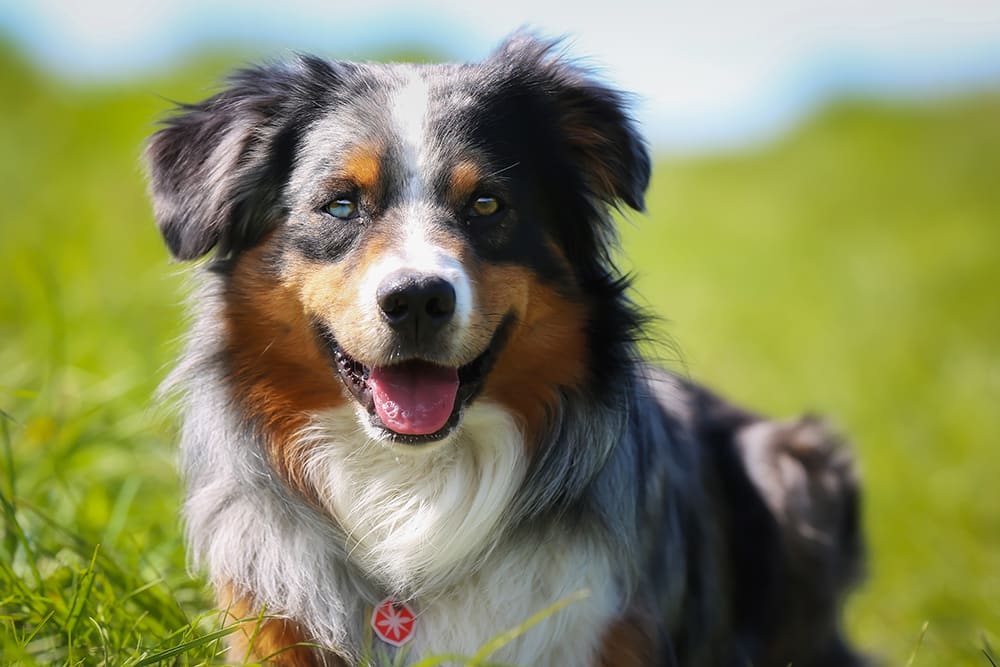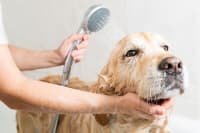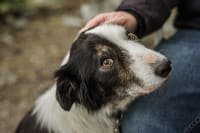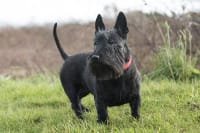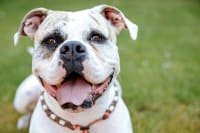Pet Care
Is it safe for dogs to eat grass?
Why do dogs eat grass?
If your dog eats grass you may be worried and confused about this strange behavior. In some cases, our four-legged friends will even eat grass, vomit, then go right back to eating grass.
Many pet parents ask us whether this behavior is safe and whether it’s an indication that their dog feels that something in their stomach needs to be brought up?
Although some dogs will vomit after eating grass, this isn’t the case for all dogs and so it seems unlikely that they are trying to induce vomiting. Below are a few of the more common reasons why your dog may enjoy eating grass.
Could there be a physical reason why your dog eats grass?
Most dogs eat grass without displaying any signs or symptoms of stomach awesome. So, it seems unlikely that dogs would eat grass to induce vomiting. That said, physical reasons can include a lack of fiber in their diets. Because dogs are omnivores, their good health depends on plant foods in addition to high-quality meat. Fiber is needed to help keep their digestive system running smoothly, and eating a few blades of grass may be an easy way for your pup to get some roughage in their diet.
That said, if your dog is eating grass and showing signs of stomach upset, your pooch may have a medical problem. Dogs can be afflicted with numerous gastrointestinal issues such as inflammatory bowel disease or pancreatitis. If your dog is eating grass and exhibits other symptoms such as decreased energy, constipation, diarrhea or lack of appetite, we recommend booking an examination with your vet.
Is there a psychological reason why your dog is eating grass?
Dogs often eat grass due to anxiety or boredom, in much the same way that pet parents will bite their nails. If your dog does not have any other symptoms of digestive issues but frequently munches on grass, the reasons for their behavior may be psychological.
If your dog could simply be suffering from boredom, increasing the length, distance or intensity of walks could help to reduce grass eating.
Separation anxiety could also be the reason that your dog is eating grass. Try leaving an old blanket or t-shirt with your scent on it with your dog when you leave the house. Your dog may find the familiar scent reassuring and help to curb their grass-eating habit.
Some dogs show obsessive behaviors. If your dog is obsessively eating grass, your vet will be able to advise you on how to help your pup reduce obsessive behaviors.
Is it safe for dogs to eat grass?
In most cases, provided that your dog is otherwise healthy and on a regular schedule of parasite prevention medication, eating grass is considered to be a safe behavior.
One important thing to note is that, in order to help keep your grass nibbling pooch healthy, be sure that there are no herbicides, pesticides or fertilizers on the grass your dog enjoys.
Note: The advice provided in this post is intended for informational purposes and does not constitute medical advice regarding pets. For an accurate diagnosis of your pet’s condition, please make an appointment with your vet.
Are you concerned about the extent of your dog’s grass eating habit? Contact Animal Hospital of Clemmons today to book an examination for your four-legged family member.
Looking for a vet in
Clemmons?
We’re always accepting new patients, so contact our veterinary hospital today to book your pet’s first appointment.
Related Articles View All
Puppy Teething Tips for Pet Parents
Our Clemmons vets understand how trying it can be when your puppy starts teething. Teething pain often leads puppies to chew on things they shouldn’t – including your best shoes and furniture. Here are a few tips to help you and your puppy deal with your puppy’s teething.
Dog Grooming 101 – Grooming Different Coat Types
Although all dogs require brushing, bathing and general grooming, some require more care than others. Today our Clemmons pet grooming team explains how to care for dog coats of different textures and lengths.
What To Do About Your Dog’s Stinky Breath
Do you avoid getting close to your pup because their stinky breath is unbearable? Bad breath is common in dogs — especially in senior dogs — and can be a sign of a serious health issue. Our Clemmons vets explain some causes of dog bad breath and how you can help to treat or even prevent it.
Why should I enrol my pet in a Wellness Plan?
If your veterinary clinic offers Pet Wellness Plans you may be curious as to how these plans work and whether they are worth signing up for. Today, our Clemmons vets share 4 benefits to consider when deciding whether a Pet Wellness Plan is right for you and your pet.
Dog Acupuncture & The Conditions It Can Treat
Our Clemmons vets know that if your pet is suffering from a health issue you will want to do all you can to help them feel better. Pet acupuncture can be a noninvasive way to help improve your pet’s rehabilitation. Here’s a bit about how acupuncture for dogs works and when it can be used.

